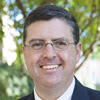
Anyone who pays attention to Christianity in the United States cannot help but notice the proliferation of organizations claiming to promote a Christian worldview. Sometimes called cultural apologetics and often called ministry, worldview theology found a fast market in evangelical circles the last thirty-five years or so. Variations on the theme are manifold, but a common feature is an intense commitment to defending Christian values against alleged encroachments from secularism, atheism, relativism, and, generally all things that do not support a Christian worldview.
Another characteristic of worldview theology is the wide-ranging cultural and political commentary it affords. Organizations promoting a Christian worldview frequently feature analysis spanning the arts, movies, music, legislation, judicial decisions, international affairs, science, and history. Worldview theology and, its doppelganger, cultural apologetics, flourish in denominational periodicals, Christian think tanks, home school literature, and political action groups. Every year a virtual cottage industry of self-credentialed organizations host hundreds of Christian worldview conferences. Some Christian colleges and seminaries include descriptions of a Christian worldview in their institutional mission statements, and more than a few require faculty and administrators to subscribe to the tenets set forth in these statements. Cultural apologetics and worldview theology are now standard core courses in some curriculums. Proliferation of the terms “Christian worldview,” however, does not equal clarification of what exactly they mean.
The idea is elastic and adaptable, qualities that make what sounds like a shapeless abstraction to critics a ready defense of the faith for proponents. The idea also has a lineage, and its usage presents interesting challenges for those who find older Protestant expressions of Christianity more appealing than either theological liberalism or evangelicalism. Specifically, worldview theology promotes the careless, and repeated, evangelical and liberal Protestant pattern of replacing confessions and ecclesiastical office with political and cultural ideology.
“Worldview” is a relatively young word that entered the vernacular in the late 18th and early 19th centuries through the influence of German idealist philosophy. Johann Fichte, Friedrich von Schelling, Wilhelm von Humboldt, Johann Gottfried von Herder, and Georg W. F. Hegel, introduced and developed “worldview” as an important philosophical device. Under the tutelage of German idealism the concept grew in significance with key contributions from emerging disciplines such as linguistics, history, and sociology. Although differing in their emphases, and often at odds with each other’s conclusions, the German idealists shared a common characteristic. They found the Enlightenment’s rational pretensions dubious, and they struggled to find meaningful ways to explicate moral imperatives in the wake of the Enlightenment’s severe metaphysical skepticism. Their efforts are marked by renewed awareness of the degree to which ideas are subject to the flux and uncertainty of historical process and development.
The specter of metaphysical, and more concretely, religious uncertainty haunted German idealism. Prior to the early modern period, for almost a millennium, Christian appropriation of Greek metaphysics maintained a privileged place in philosophy and theology. Humans were believed to possess an essential nature, broken by sin, which finds fulfillment, or completion, in relationship with a universal, transcendent, divine order mediated through Christ. How exactly Christ mediates this union and communion was the subject of much debate. But, the fact of created, yet, fallen human nature, the fact of God’s existence, and the fact of Christ’s atonement and resurrection, were not debated. Both the rational faculty and the gift of faith testified to these facts. Late Enlightenment, and to a more significant degree post-Enlightenment, German philosophy challenged this tradition. Claims of universal essentialism, human nature, and reliable first principles slowly came to be seen as accidental by-products of historical situatedness, geographical environment, and private interpretation (Geschichtlichkeit). Certainty came to apply more and more to those truths discovered through experimentation and proof and less and less to the unseen opinions of religion. Even the longstanding Aristotelian assurance that humans share a common rational nature came under scrutiny.
Withering confidence in the possibility of an objectively knowable religious and rational human nature demanded a new idiom to express human purpose in the absence of shared eternal principles. Worldview (Weltanshauung) fit the bill. To speak of a worldview was to speak of something grasped fundamentally and comprehensively apart from reason. Worldview sidestepped the long-standing Hellenized qua Christianized natural law tradition in favor of a pre-rational, pre-scientific, pre-theoretical disposition toward ordering reality. Though not necessarily a religious concept, worldview allowed religious claims a new theatre of meaning apart from both Catholic and Protestant scholasticism and Christian natural law theory. The idea dodged the epistemological challenges of the Enlightenment by moving religious claims into the realms of psychology and feeling. In the hands of German idealism, worldview came to entail something more primitively fundamental than dogma, something that operates primarily at the level of the non-rational rather than the rational. Here was a concept at once intensely personal, and yet, at the same time, comprehensive and universal in its claims about the entirety of reality.
In the 19th century and into the 20th century both liberal and conservative Protestant theologians borrowed from and modified Germany’s idealist philosophical tradition. Søren Kierkegaard used the notion of worldview in his attempts to demonstrate that experience more than reason legitimizes faith. Paul Tillich, Rudolf Bultmann, and Reinhold Niebuhr each applied Kierkegaard’s notion of worldview to various ends. Conservative Protestants found an early vocal proponent of worldview theology in the teaching of popular Scotts Presbyterian professor James Orr. The strength, however, of worldview thinking for evangelicalism emerged from the Dutch neo-Calvinists schools. In particular Abraham Kuyper, Herman Bavinck, Hermann Dooyeveerd, and Cornelius Van Til helped to give the philosophical idea of worldview a Christian connotation that could operate in the realm of Protestant orthodoxy. Nuances abound, but in general Dutch neo-Calvinism articulated worldview theology as an a priori disposition toward ordering all human meaning. At the heart of this disposition lay the problem of sin and the hope of God’s redemption in Christ Jesus. Where earlier Protestantism struggled primarily, but not exclusively, with sin and redemption as an ontological category, that is, as a question of human nature and being, the new Calvinism focused more on sin and redemption as an epistemological problem, that is, a question of right and wrong kinds of knowing.
Under neo-Calvinist influence reformed theology reached beyond systematic theology’s traditional narrative of creation, fall, redemption, and glory into broader questions of how salvation changes or refines one’s worldview. Christian faith not only saves the sinner, it also provides a paradigmatic starting point for understanding all of life’s activities. Like the German idealists, neo-Calvinist’s usage of worldview aimed for a comprehensive philosophical compass that could navigate around the problem of subjectivism. Faith, so they argued, carried objective meaning for the entirety of human endeavors, including, most especially cultural, economic, and political life. Kuyper, a gifted polymath, argued that modernism and its offspring—liberalism, Marxism, positivism, and Darwinsim—were real threats to both the Christian ordering of reality as well as the political, social, and cultural implications such ordering entails. Modernism, urged Kuyper, is an enemy of Christianity most fundamentally because modernity fails to recognize political problems are moral and spiritual problems. He perceptively understood the totalizing claims of secular panaceas, yet, to combat the deleterious effects of such claims, Kuyper uncritically appealed to the very modern idea of worldview.
Like the earlier Puritans, Kuyper viewed Christian influence in cultural and political life as duty. Worldview, however, gave this old Puritan theme a new philosophical twist. Inward grace changes more than the heart; it changes the foundational philosophy behind every decision a Christian makes. Knowing Christ as redeemer equals a way of knowing in general. Whereas creation once sufficiently grounded the common rational principle shared by both believers and non-believers, here redemption necessitates an alleged new kind of reasoning that lies beyond the ability of the unredeemed. This “Christian” way of knowing entails a mandate to bring redemption as activity to bear on the world. To be a believer is to be aware, and to be aware is to be obligated. Believers are obligated to transform their outward conditions in light of their redeemed mode of knowing. Explicit scriptural warrant is unnecessary for action because all of life, not just worship and one’s individual behavior, fall under scriptural warrant. Where earlier Reformation theology, following both Augustine and Aquinas, distinguished redemptive history and history, cult and culture, and the already but not yet of Christ’s presence, worldview theology united them into a tidy ideological package that could meet, or at least try to meet, the modern world on its own philosophical terms.
 W. Jason Wallace (PhD University of Virginia) is an Associate Professor of History and director of the Core Texts Program at Samford University in Birmingham, Alabama. Dr. Wallace is the author of Catholics, Slaveholders, and the Dilemma of American Evangelicalism, 1835-1860, and has a forthcoming book from The Johns Hopkins University Press entitled Collapse of the Covenant: The Transformation of the Puritan Ideal.
W. Jason Wallace (PhD University of Virginia) is an Associate Professor of History and director of the Core Texts Program at Samford University in Birmingham, Alabama. Dr. Wallace is the author of Catholics, Slaveholders, and the Dilemma of American Evangelicalism, 1835-1860, and has a forthcoming book from The Johns Hopkins University Press entitled Collapse of the Covenant: The Transformation of the Puritan Ideal.

The Alliance of Confessing Evangelicals is member supported and operates only by your faithful support. Thank you.














 © Alliance of Confessing Evangelicals
© Alliance of Confessing Evangelicals


